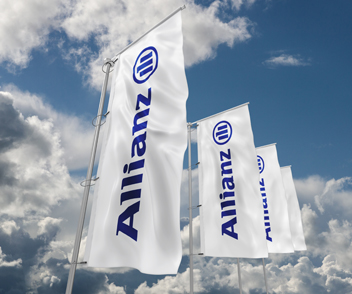Allianz Risk Barometer 2020 risk in focus:
Changes in legislation and regulation
Changes in legislation and regulation
Global trend
- 2020 rank: 3 (27%)
- 2019 rank: 4 (27%)
- 2018: 5 (21%)
- 2017: 5 (24%)
- 2016: 5 (24%)
Top risk in the following countries
- Australia
- Bulgaria
- Colombia
- Croatia
- Hungary
- Russia
Partly in reaction to this trend, the European Union (EU) has taken the opposite stance, aggressively promoting its trade model – freer and greener – as evidenced by the implementation of the EU-Japan Free Trade Agreement and the EU-Singapore Free Trade Agreement, as well as the finalization of negotiations of the EU-Vietnam or the EU-Mercosur states (Argentina, Brazil, Paraguay and Uruguay) agreements a few months before the end of the European Commission’s mandate.
“Trade policy is becoming just another political tool for many different policy ends, such as economic diplomacy, geopolitical influence or environmental policy,” explains Ludovic Subran, Chief Economist of Allianz. “This activism is not restricted to the US: it has spread to Japan and South Korea, India and the EU.”

Meanwhile, companies will face major regulatory challenges in 2020. “The EU Sustainability Regulation is nothing less than a game changer,” says Subran. “The impact on corporates will be as wide-ranging as new rules on accounting and data protection were in the past.”
Mainstreaming sustainability into risk management basically means that all businesses have to develop a clear Environmental, Social and Governance (ESG)-profile by disclosing their ESG-risks as well as opportunities, using state-of-the- art methodologies and techniques. At the heart of the process is the de-carbonisation drive, i.e. defining a clear path to carbon-neutrality by 2050. Many countries have already enshrined this goal by law and many more will follow in the coming years, including – very likely – the EU.
For many corporates, the process of data gathering, target-setting and measurement implementation will be a cumbersome one – but one which also provides huge opportunities. “Increasingly, companies and investors alike – not least driven by their own regulatory constraints – will choose their business partners by their sustainability credentials,” says Subran. “Corporates that anticipate the coming sustainability regulation will be ahead of the curve in competition. Sustainability is the name of the game for staying in business and prospering. And not only in Europe. The EU might be spearheading regulation in this field, but, as with other EU initiatives, Europe’s sustainability regulation is set to become a global standard rather quickly.”
The Allianz Risk Barometer is our annual report identifying the top corporate risks for the next 12 months and beyond, based on the insight of more than 2,700 risk management experts from over 102 countries and territories.















